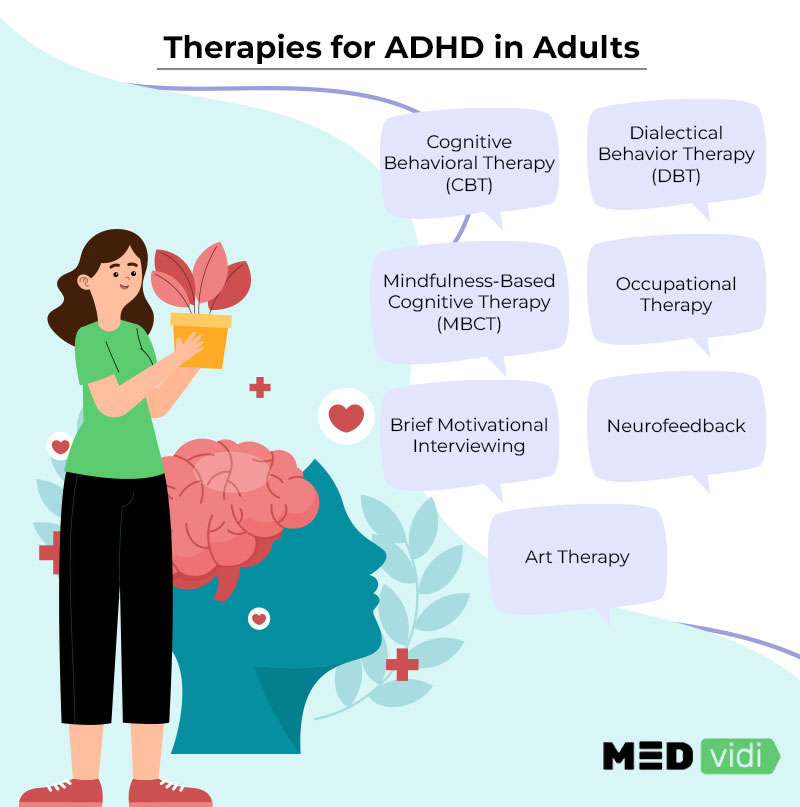The Advantages of Individualized ADHD Treatment Strategies for Better Outcomes
The application of customized ADHD therapy strategies has arised as a critical technique in boosting therapeutic end results for individuals impacted by this problem. By acknowledging the unique indications of ADHD in each person, these personalized treatments advertise greater interaction and inspiration, inevitably resulting in extra effective coping strategies. This tailored strategy not only addresses academic and work-related difficulties yet also cultivates enhanced social relationships and general quality of life. The real level of these advantages increases crucial inquiries about the certain elements that contribute to long-lasting success and exactly how they can be enhanced for varied populations.
Understanding ADHD Irregularity
Although Attention-Deficit/Hyperactivity Condition (ADHD) is frequently viewed as a single condition, its manifestations can vary substantially amongst people. This irregularity is influenced by a variety of factors, including age, gender, coexisting conditions, and environmental contexts. As an example, youngsters with ADHD might display hyper behaviors, while grownups might mainly fight with focus deficiencies. Gender distinctions also play a role, as males are a lot more often diagnosed with ADHD and usually show a lot more overt signs, whereas females might provide with much less apparent inattentiveness.
In addition, individuals with ADHD might experience a range of emotional and behavioral obstacles, such as anxiousness or opposite defiance, that can make complex diagnosis and treatment. The interaction of these variables can result in diverse experiences of ADHD, requiring a nuanced understanding of the condition. It is also worth noting that ADHD can provide differently across different social contexts, affecting just how symptoms are identified and dealt with. This understanding highlights the value of identifying ADHD as a multifaceted condition, which calls for customized methods to therapy that take into account the special demands and experiences of each individual.
Key Components of Personalization
Personalized ADHD therapy strategies are based in numerous key parts that guarantee effective management of the disorder. A detailed assessment is essential, involving standardized ranking ranges, interviews, and behavioral monitorings. This comprehensive evaluation enables clinicians to recognize the person's one-of-a-kind signs and symptoms, strengths, and difficulties.
2nd, the involvement of numerous stakeholders, consisting of moms and dads, educators, and the individual, adds to an alternative view of the person's demands. Collaboration fosters a supportive atmosphere that can adjust to the individual's context and way of life.
Third, therapy plans need to be flexible and adaptable, permitting adjustments based upon recurring comments and the person's progressing demands. This adaptability allows the integration of various therapeutic strategies, such as behavioral treatments, psychoeducation, and medicine monitoring.
Furthermore, social and contextual factors need to be thought about. Recognizing the individual's background, worths, and choices ensures that the therapy matters and considerate.
Finally, regular follow-ups and evaluations are vital to check development and make necessary modifications. By concentrating on these essential elements, personalized ADHD treatment plans can dramatically enhance the performance of find more info interventions, causing boosted outcomes for individuals with ADHD.
Enhanced Interaction and Motivation
To efficiently promote boosted engagement and motivation in individuals with ADHD, it is necessary to incorporate techniques that resonate with their rate of interests and staminas. Individualized therapy plans that align with a person's interests can lead to increased engagement in therapeutic tasks, cultivating a sense of ownership and interest for the process.
Using interactive and creative approaches can additionally substantially improve inspiration. Incorporating gamification components or real-world applications of abilities can make tasks much more attractive and relevant. This not just catches interest yet also reinforces learning through enjoyable experiences.
Additionally, establishing attainable and purposeful goals customized to the individual can strengthen motivation. When individuals see their development towards directly considerable objectives, they are extra most likely to remain engaged. Normal comments and recognition of success can even more sustain inspiration, creating a positive comments loophole that motivates ongoing initiative.
Finally, promoting a helpful setting where individuals feel understood and valued can considerably check here influence their interaction levels. When therapy plans are created collaboratively, integrating input from the person, they are a lot more likely to really feel bought their trip, ultimately causing improved results in taking care of ADHD.
Improved Coping Techniques
Creating improved dealing methods is crucial for individuals with ADHD, as it outfits them with reliable tools to navigate day-to-day challenges. A personalized treatment plan enables the recognition of particular coping systems customized to the person's unique demands and situations - ADHD treatment. Strategies such as mindfulness, time administration abilities, and business techniques can be integrated right into day-to-day routines, fostering a feeling of control and lowering anxiousness
Mindfulness techniques, consisting of meditation and deep-breathing workouts, help people with ADHD concentrate their focus and manage their emotions. Time administration methods, such as making use of timers or damaging jobs right into smaller, workable steps, can alleviate sensations of overwhelm. Additionally, organizational tools my response like planners and checklists can enhance efficiency and accountability.
Long-term Positive Results
Applying personalized ADHD therapy strategies can bring about substantial lasting favorable results for individuals. These tailored methods, which think about distinct symptoms, preferences, and life conditions, promote extra efficient administration of ADHD symptoms over time. By focusing on the particular needs of the person, these strategies improve adherence to treatment methods and foster higher interaction in restorative activities.

Furthermore, customized treatment strategies can dramatically reduce the threat of comorbid problems, such as stress and anxiety and depression, which are commonly related to ADHD. Early intervention and regular support aid people build strength and coping strategies, promoting general mental wellness.
Eventually, the long-term favorable end results of customized ADHD therapy prepares not just enhance the quality of life for people but additionally add to their overall health and success in different life domains. This alternative strategy highlights the value of individualized treatment in managing ADHD successfully.
Conclusion
